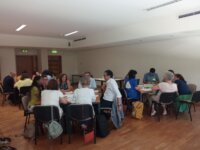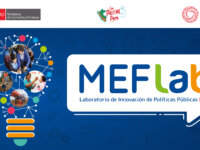Wildfires is one of the main causes of blackouts in Brazil. To monitor the thousands of Brazilian Transmission Lines (TLs), ANEEL created the GGT System, which consists of a tool that uses Artificial Intelligence and satellite images processing to preventively inspect the maintenance of TLs against wildfires. With the GGT System, there was a 89% reduction in shutdowns caused by wildfires, representing a great improvement in the reliability of the electricity offered to the Brazilian population.
Innovation Tag: Evaluation and Oversight
Bağcılar Municipality has implemented an Algorithmic Decision Systems model with the aim of maximizing the value proposition and satisfaction level offered to stakeholders at the minimum cost. This model enables the municipality to make decisions regarding the investment worthiness of its current and planned services and activities, as well as the direction of improvements needed in existing products and services, both in the eyes of stakeholders and the organization.
Chile has registered 700 public programmes. The annual performance monitoring is carried out by two institutions: SES/Dipres, so it is not a simple task. In order to contribute to greater transparency in the use of public resources, SES/Dipres incorporated the principles of innovation: co-creation and testing of improvements to the process. The result was a substantial improvement in the quality of the monitoring reports, making them a relevant input for decision-making.
In order to continuously improve public policies and correct any deployment difficulties, the French Government has set up a data-driven steering system that allows it to monitor the results of more than 60 priority policies across all departments in its territory. This system is embodied by an internal steering and monitoring tool (PILOTE) and a citizen information site presenting the results in open data.
The Government of Canada is experimenting writing existing laws and proposed regulations into code. Encoding rules allows us to run legal simulations in the regulatory drafting room, which helps us detect ambiguities, loopholes, and gaps in the rules that often go unnoticed. However, existing tools designed by and for programmers are not intuitive for rule-makers. In response, we set out to develop one – an open-source Rules as Code tool called Blawx.
In Peru, the lack of systematic evidence hinders efficient budget allocation and innovative public policy. The MEFLab addresses this by conducting experimental evaluations of programs and policies that benefit the Peruvian Ministries and the citizens through improved public services. The lab's innovation lies in using existing evidence, creativity, and collaboration to design new public policy solutions and promote evidence-based decision-making.
The Ministry of Environment, Water, and Agriculture in Saudi Arabia proudly introduces the innovative mobile application called Livestock Chain as a groundbreaking solution leveraging Blockchain technology to effectively manage livestock data within the all country regions. This visionary application is designed to preserve the rich heritage of livestock while offering a secure mechanism for data storage and retrieval, by assigning each livestock a unique identifier.
Bağcılar Municipality has implemented an Algorithmic Decision Systems model for evaluating public services to maximizing the value proposition and satisfaction level at the minimum cost. This model enables the municipality to make decisions regarding the investment worthiness of its current and planned services and activities, as well as the direction of improvements needed in existing products and services, both in the eyes of stakeholders and the organization.
The National Internship Program, coordinated by the Presidency of the Republic of Türkiye Human Resources Office, is a nationwide program designed to assist youth employability and school-to-work transition. It involves all public institutions and voluntary employers with the aim of providing internship opportunities for university students with principles of equal opportunity and merit ensured by its platform. The Program helped and encouraged candidates to engage in activities for their…
Case Study
Monitoring and participatory evaluation of the National Strategy to Combat Poverty 2021-2030 (ENCP)

As part of the National Strategy to Combat Poverty (ENCP), PlanAPP is piloting a participatory monitoring and evaluation (M&E) model. This model involves designing mechanisms for participation in collaboration with social sector organisations. Following this, individuals living in poverty will participate in the M&E process of the ENCP from its inception. The goal is to enhance the development of well-informed and contextually relevant public policies, foster a culture of participation, and…



